(1538 products available)

























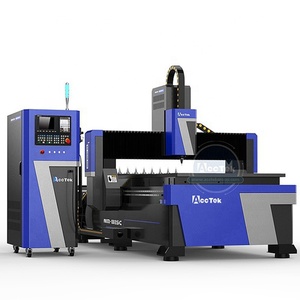
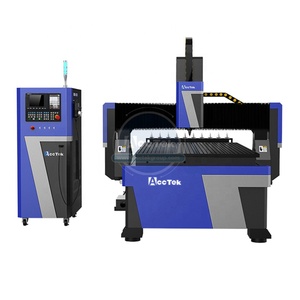































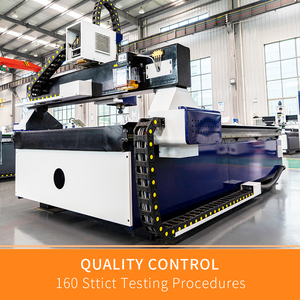

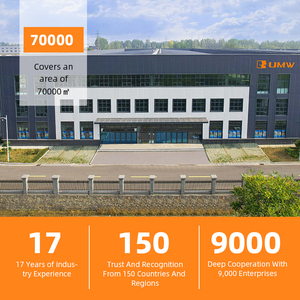
 Ready to Ship
Ready to Ship


































 Ready to Ship
Ready to Ship






























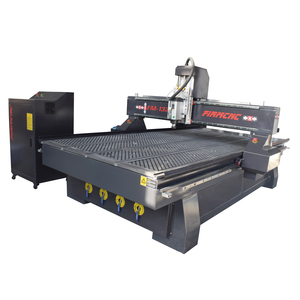























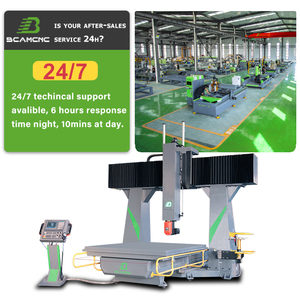





















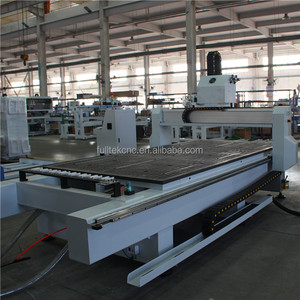

























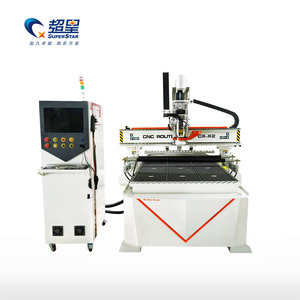
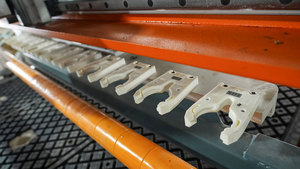








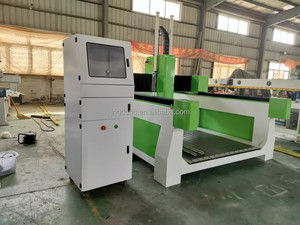







 Ready to Ship
Ready to ShipThe CNC 5x10 router is used in industrial applications, and here are the various types available on the market.
CNC Wood Router Machines for Industry
CNC wood routers for industry offer high speeds and ensure accuracy. All these machines are designed to meet the high demand for wood products. They are effective in making furniture, cabinetry, and decorative elements. The CNC router table can work on large sheets of wood and perform complex designs with ease. This machine reduces production time and increases efficiency.
Industrial CNC Plastic Router Machines
Industrial CNC plastic routers cater to the growing demand for plastic products, and these machines are specifically designed to cut and shape plastic materials. They perform well in high-volume settings where precision in parts manufacturing is required. CNC plastic routers are commonly found in industries like automotive, aerospace, and signage. They hence offer a versatile solution for intricate plastic designs.
CNC Metal Router Machines for Industry
Metal CNC routers are used to cut soft metals like aluminum, brass, and plastic. These machines are not like regular metal cutting tools as they focus more on engraving, milling, and creating detailed parts. All metal CNC routers are commonly used in electronics, automotive, and engineering industries, which require precision in making metal components.
CNC Foam Router Machines for Industry
CNC foam routers are used in industries that need lightweight materials. All these machines precisely cut and shape rigid and soft foams. They are popular in prototyping, packaging, and architectural modeling businesses. CNC foam routers create complex shapes, ensuring clean edges and smooth surfaces. They also reduce material waste and make the most out of the material used.
CNC Composite Material Router Machines for Industry
CNC composite material routers are made for cutting and shaping composite materials. They are ideal for industries like aerospace and automotive which require high-performance materials. These routers can make complex shapes while ensuring the integrity of the material is intact. They are designed to meet stringent safety and durability standards.
The CNC Router Machines used in the industries have the following features that enhance their performance.
High Precision and Accuracy
Steel rulers ensure that these industrial CNC routers work with high precision and accuracy. They can make detailed cuts and engravings to a tolerance of less than a millimeter. The precision is especially important in industries where component defects will lead to performance issues. The accuracy is assured by advanced servo motors, ball screws, and linear guides that ensure consistent movement.
High-Speed Spindles and Motors
High-speed spindles are fitted into the routers to enable cutting at various speeds. The routers are usually fitted with brushless spindle motors with a power range of around 1.5kw to 15kw. The powerful spindles will cut through dense materials without stalling. There is also a variable speed control which allows fine adjustments based on the material the machine will be working on.
Automatic Tool Changers (ATC)
Most industrial CNC routers have Automatic Tool changers modifications to reduce manual intervention. ATCs can hold several tools and change them automatically based on the program requirements. This feature allows for complex operations like engraving, drilling, and milling without the need to stop and change tools by hand.
Large Working Area
Most industrial CNC routers are designed to handle large workpieces. The typical working area for a router, for instance, a 5x10 CNC router, ranges from 5 feet by 10 feet. Some heavy-duty routers may have larger work area dimensions. The large working area allows for mult material appliacation in industrial use.
Multi-axis Capabilities
Industrial CNC routers have multi-axis capabilities for complicated routing and milling operations. The common configurations are 5 axis CNC router machines. These machines allow for angular cuts and 3D profiling. This feature increases the versatility of the machine in making complex components.
Robust Construction
Industrial CNC routers are made for constant use in a commercial setting. They thus have a sturdy and stable frame which minimizes vibration during operation, hence ensuring better accuracy and finish.
Advanced CNC Control Systems
CNC control systems direct the movement of the router and the spindle. They also have computerized numerical control systems that have features like digital interfaces, and simulation which will help in easy programming and precise control of the operations. The advanced control systems will increase efficiency and productivity by reducing errors.
Industrial CNC routers are durable due to their solid and robust construction that is adapted over time to perform in an industrial setting.
Sturdy Frame Construction
The router frame is made of thick steel or cast iron to give the stability and strength that reduces vibration when the machine is in use. The stability improves cut accuracy and makes the machine last longer. The strong vibration resistance also prevents internal components like motors and spindles from wearing out quickly.
High-Quality Spindles and Motors
The spindles and motors in industrial CNC routers are made of high-quality materials like steel or aluminum alloys. They are designed for continuous operation. The great-quality bearings ensure smooth rotation, and less heat is generated during heavy-duty work. The reduced heat minimizes thermal expansion and prevents wear on internal components.
Commercial Grade Ball Screws and Linear Rails
Ball screws and linear rails of industrial CNC routers are commercial-grade components that can handle frequent use without stripping or corroding. Most of them are fitted with anti-backlash nuts to maintain tension over time, and there is no play in the hardware. There is also regular lubrication in the screws and rails, further minimizing friction and wear.
Cooling Systems
Industrial CNC routers will often have built-in cooling systems like water cooling or air cooling, especially for spindles. The cooling system reduces heat build-up during long production runs. It ensures that the router can handle heavy workloads for long hours without overheating or damaging the machine parts.
Industrial-Grade Components
Industrial CNC routers have commercial-grade components like bearings, drives, and electronics. These components are made to withstand heavy loads and have extended life expectancies. The electronics are usually encapsulated or shielded to protect them from dust, debris, and contaminants that are common in industrial settings. This dust and debris protection minimizes wear and maintenance requirements.
Maintenance-Friendly Design
Industrial CNC routers are designed for easy maintenance, and easy access to internal components encourages routine servicing. Many machines will have enclosed moving parts to prevent dust and debris from accumulating inside. Some of the parts are easily replaceable, which reduces downtime when worn components have to be changed out. Lubrication systems are also included to ensure the machine is always in good shape.
The following maintenance practices will keep CNC routers in good shape and increase their productivities in industrial applications, and CNC router machines will also last longer.
Regular Cleaning
Dust and debris will accumulate on CNC routers, affecting their performance and making them less accurate. Clean work areas, tools, and machine parts daily after doing routs. There are also vacuuming and blowing methods for cleaning machine parts, and use a soft brush to wipe the spindles, rails, and ball screws. Air lines and metallized brushes are also used to clean the linear guides and precision components to avoid rusting or wearing out on them and maintain their smoothness.
Lubrication
Proper lubrication is key in ensuring that the moving parts of industrial CNC routers work well. Lube all the moving parts as per the manufacturer's recommendations. Pay attention to ball screws, linear rails, and guideways. Lubricate them often because improper lubrication will lead to friction and wear. Use the recommended lubricants as not all lubricants will work on all machines.
Regular Inspections
CNC routers should be regularly inspected for wear and tear to avoid sudden breakdowns. Look out for worn bearings, damaged belts, and rusted spindles. Check for signs of overheating in the motor and other electronic components. Replace worn-out parts on time when doing the inspection so that it does not affect production.
Software Updates and Calibration
Update the CNC software and firmware as needed to ensure peak performance. Calibration will also ensure that the machine maintains precision cuts over time. The common calibrations that are done frequently are spindle calibration, axis alignment, and tool offset calibration.
Cooling System Maintenance
Cooling systems are incorporated in most CNC routers, and they should be regularly maintained. Check coolant levels, and replace coolant that has become dirty and degraded. Inspect coolant lines for leaks. The most frequent maintenance of air-cooled spindles is to clean the cooling fans and ducts to prevent heat build-up.
Regular Maintenance by Professionals
The industrial CNC routers are complex machines, and it is a good idea to have routine maintenance carried out by professional technicians. They will do thorough checks, replace worn parts responsibly, and do calibrations based on the router's usage and manufacturer's specifications. They also service a fleet of similar machines; they are always cognizant of the newest techniques and innovations in the art of CNC machining.
The industries that benefit from the machines include the following:
Maintenance required for the CNC routers is as follows:
A CNC router is ideal for detailed engraving because of its precision and high speed. An engraving CNC tabletop router uses specialized bits to carve intricate designs into various materials. Since it is automatically controlled, it ensures consistent depth and pattern across the entire workpiece. Apart from engraving, the router can do milling, cutting, and drilling. It will therefore be an all-in-one machine for many tasks.
CNC routers reduce production time by handling complex tasks like cutting, engraving, and drilling at high speed. The precision minimizes waste by ensuring materials are utilized effectively. The automation reduces labor costs and lowers human error. The large working area also allows for big projects which increases the overall output.